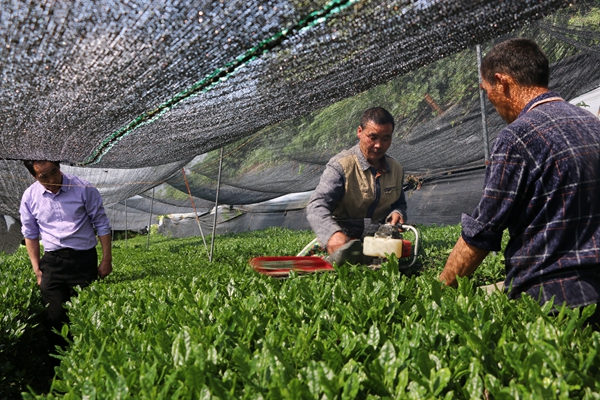Matcha without match


While most villagers were skeptical as to whether tea would actually improve their lives, Yang took the initiative to plant tea and encouraged others to transfer their farmland for collective use. That year, the village grew assorted tea varieties on 27 hectares.
Yang continued to experiment with new ways to increase harvests and develop the local tea industry.
He also registered the Luoxiang village tea cooperative and a tea-processing plant, Luoxiang Tea Co, selling nearly 300,000 yuan ($43,000) worth that year.
The village became one of the first to cooperate with bigger tea enterprises to sell its products outside. In 2015, Gui Tea Co Ltd, one of Guizhou's biggest tea companies, sought to add matcha to its products.
"The traditional brewed tea is a slow-moving product," Gui Tea general manager Hu Qingshuang says.
"Its output is greater than its sales, and the market has reached saturation. But, there's considerable demand for matcha."
The Gui Tea Industrial Park and the Tongren Gui Tea brand were established in Jiangkou county in 2017, after purchasing facilities and successfully developing manufacturing methods.
Luoxiang village started cooperating with Gui Tea in 2018, building a processing plant specially for matcha and signing a long-term contract with the company in technical guidance, sales and brand upgrading.
"With the help of Gui Tea, our plantation has expanded to 1,066 hectares, about 0.2 hectare per capita, and each hectare can yield 90,000 yuan in revenue," says Que Conghan, deputy head of the village and general manager of Luoxiang Tea Co.

































